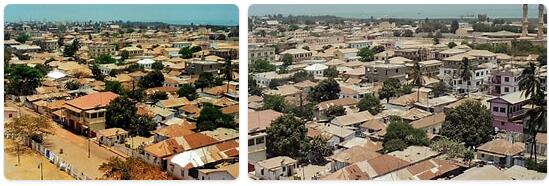The security situation in the country has stabilized after the resignation of former President Jammeh in 2017.
Safety
The political situation is largely normalized after the 2016/17 elections. Crime is relatively low compared to many other countries in the region, but crime and theft are a growing problem. The Gambia receives a number of tourists from Norway, and most of the journeys are completed without problems. Traffic accidents and a limited health service pose the greatest safety risk. The Gambia is mainly a Muslim country, and travelers should respect local customs and customs, such as dressing in public places. The practice of homosexuality is prohibited.
Floods and floods can occur in exposed areas during the rainy season, usually June ¨C November.
There is widespread internet fraud in West Africa, and it is warned against contacting the Internet with people you do not know.
Norwegian citizens staying in or planning a trip to The Gambia are encouraged to register their travel on www.reiseregistrering.no.

Entry
Please note that entry regulations may change. The Foreign Service is not responsible if the following information on entry regulations or visa requirements is changed at short notice. It is the responsibility of the traveler to ensure that travel documents are valid for entry and to familiarize themselves with the current entry rules for each country.
Norwegians can obtain a visa upon arrival in Gambia for stays of up to 90 days. Travelers are responsible for having a valid passport (valid six months beyond the end of travel).
Health
Gulf vaccine is recommended, but is no longer required. In addition, everyone should be vaccinated against diphtheria, tetanus, whooping cough and poliomyelitis. You may be asked to present a valid vaccination card upon arrival and if you come from places where yellow fever is prevalent.
The Gambia is a malaria area. Preventive medication is recommended, as well as the use of mosquito repellent and mosquito nets.
Practical information
The official name is “Republic of the Gambia” and its capital is Banjul, while the largest city is Serekunda. English is the official language. There are ATMs in Banjul, around the tourist spots and at the airport. Some hotels accept credit card payments. According to allcitycodes, Gambia area code is +220.
The Gambia Consulate is temporarily closed until 6 April. The consul can be contacted on + 220 7883519, from 10 am to 2 pm Monday to Friday.
Geography
Many waders, gallinaceous and palmipeds complete the picture. The reptiles, the amphibians as well as the freshwater fishes are represented with that abundance of forms that is typical of the fauna of equatorial Africa. Thus the world of invertebrates includes innumerable species of insects, with strange shapes and dazzling colors, spiders, millipedes, terrestrial and freshwater molluscs, etc.
The Gambia is inhabited by various tribes of external origin: the Mandingo, coming from Futa Gialon, honest traders but somewhat hostile to Europeans; the Fula, coming from the same region, semi-nomads dedicated to agriculture in the rainy season; the Jollofs, originally from East Africa, the most intelligent, good farmers and traders, whose speech is widespread; the Diolas, pagans, living in small communities, skilled farmers, parks, hardworking, not very sociable, hostile to all other lineages.
The arable land of the Gambia consists of laterite, covered with a thick blanket of alluvial soil; sterile areas are those where laterite is exposed or where there is sand or swamps. By far the most important product is the peanut, which can be easily and extensively cultivated: in 1928, of the total value of 1,178,000 pounds, which amounted to exports, 1,122,000 were represented by the peanut, from which a edible oil. Elaeis kernels are also exported, but they are largely collected outside the colony’s territory. Kola is harvested in small quantities; the export of piassava fiber could be increased. On the other hand, the rubber, which was of good quality and was once exported, is no longer collected due to the devastation caused by excessive exploitation. Ivory is no longer exported either.
Indigenous industries are scarce: there are factories of clothing and crude pottery; even the leathers are prepared and worked with local style decorations. Imports (1,235,000 sterfine in 1928) consist mainly of cottons, rice, kola nuts, metals, sugar and tobacco.
There are no railroads: Cape Road runs west from Bathurst and Government Road (which branches off approximately 1,800km) circles the entire colony, and although unpaved, it is in good condition. The river is mainly used for communications, on which small government steams operate. The best landings on the Gambia are: Ballanger, 193 km away. upstream of Bathurst, where the river has m. 5.50 deep; Kuntaur, about 250 km. (depth 4.85 m), Mac Carthy Port and Bassee on the Mac Carthy island (depth 3.65 m), where indigenous products flowed on the back of animals or on the shoulder of a man; wheeled vehicles are almost unknown.